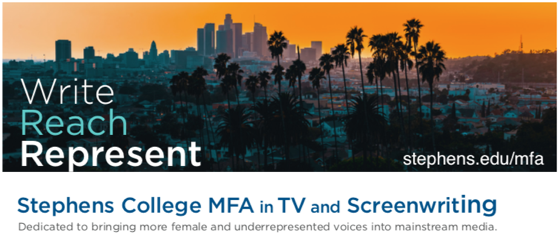Watch this entire presentation
Subscribe to Rosanne’s Channel and receive notice of each new video!
Transcript:
…and then what happened is we had a really famous stock market crash and The Depression began and these men, particularly Louis B. Mayer, went to all the employees at their studio and said “We can’ pay you the money paid you last year. We need everyone to take at 50% pay cut and we’re in charge. We’re your employers so you have to do it or you can’t work,” and many of the writers and actors figured out there’s a problem here. Lionel Barrymore was a famous actor and he said to Louis B. Mayer, “You’re acting like a man on his way to the guillotine wanting to stop for a manicure.” I clearly don’t believe what you are saying to me, but I don’t have any power not to take a pay cut because you’re my employer and likewise, my favorites, the Hacketts said, “That day he created more communists than Karl Marx.”
A Note About This Presentation
A clip from my keynote speech at the 10th Screenwriters´(hi)Stories Seminar for the interdisciplinary Graduation Program in “Education, Art, and History of Culture”, in Mackenzie Presbyterian University, at São Paulo, SP, Brazil, focused on the topic “Why Researching Screenwriters (has Always) Mattered.” I was especially pleased with the passion these young scholars have toward screenwriting and it’s importance in transmitting culture across the man-made borders of our world.
To understand the world we have to understand its stories and to understand the world’s stories we must understand the world’s storytellers. A century ago and longer those people would have been the novelists of any particular country but since the invention of film, the storytellers who reach the most people with their ideas and their lessons have been the screenwriters. My teaching philosophy is that: Words matter, Writers matter, and Women writers matte, r so women writers are my focus because they have been the far less researched and yet they are over half the population. We cannot tell the stories of the people until we know what stories the mothers have passed down to their children. Those are the stories that last. Now is the time to research screenwriters of all cultures and the stories they tell because people are finally recognizing the work of writers and appreciating how their favorite stories took shape on the page long before they were cast, or filmed, or edited. But also because streaming services make the stories of many cultures now available to a much wider world than ever before.
Many thanks to Glaucia Davino for the invitation.
* A portion of each sale from Amazon.com directly supports our blogs
** Many of these books may be available from your local library. Check it out!
† Available from the LA Public Library
Podcast: Play in new window | Download
Subscribe: RSS
![26 The Great Depression from Why Researching Screenwriters (has Always) Mattered [Video] (45 seconds)](https://rosannewelch.com/wp-content/uploads/2020/09/rmw-sao-paolo-26.png)
![25 Selling Services, not products from Why Researching Screenwriters (has Always) Mattered [Video] (1 minute)](https://rosannewelch.com/wp-content/uploads/2020/08/rmw-sao-paolo-25.png)
![24 Studios and “Work For Hire” from Why Researching Screenwriters (has Always) Mattered [Video] (1 minute 10 seconds)](https://rosannewelch.com/wp-content/uploads/2020/08/rmw-sao-paolo-24.png)
![23 Edna Ferber and New York Writers from Why Researching Screenwriters (has Always) Mattered [Video] (1 minute 8 seconds)](https://rosannewelch.com/wp-content/uploads/2020/08/rmw-sao-paolo-23.png)
![Panel Discussion: More Than A Period: Writing Girls Coming of Age Stories For TV [Video] (1 hour 27 minutes)](https://rosannewelch.com/wp-content/uploads/2020/08/sddefault.jpg)



![22 More On The Auteur Theory from Why Researching Screenwriters (has Always) Mattered [Video] (1 minute)](https://rosannewelch.com/wp-content/uploads/2020/08/rmw-sao-paolo-22.jpeg)
![21 Truffaut and The Auteur Theory from Why Researching Screenwriters (has Always) Mattered [Video] (56 seconds)](https://rosannewelch.com/wp-content/uploads/2020/08/rmw-sao-paolo-21.jpeg)
![20 Ruth Gordon & Garson Kanin from Why Researching Screenwriters (has Always) Mattered [Video ] (53 seconds)](https://rosannewelch.com/wp-content/uploads/2020/07/rmw-sao-paolo-20.jpeg)
![Screenwriter Jennifer Maisel from The March Sisters at Christmas, and Tempting Fate from the How I Wrote That Podcast [Audio]](https://rosannewelch.com/wp-content/uploads/2019/08/hiwt-stephens-logo-1-1.png)
![Screenwriter Jennifer Maisel from The March Sisters at Christmas, and Tempting Fate [Audio]](https://rosannewelch.com/wp-content/uploads/2020/07/MFA-program-Jennifer-Maisel.png)
